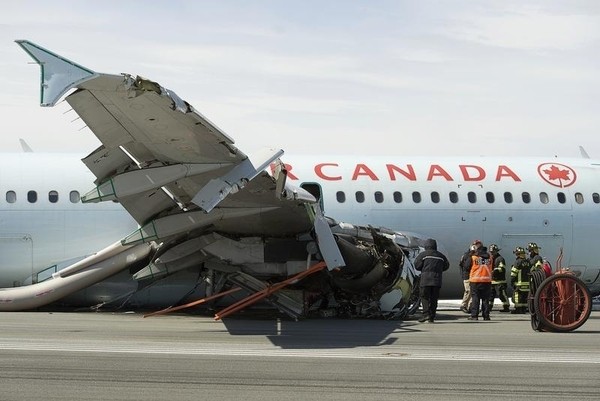Many Transport Canada pilot inspectors haven't flown in years, says union

A new survey among Transport Canada's front-line aviation inspectors reveals broad concern about recent cuts to aviation safety.
The survey, released by the Canadian Federal Pilots Association, finds most Transport Canada's pilot inspectors haven't flown an actual aircraft in years and a majority report they have not been trained for the work they are asked to do.
Many licenced pilot inspectors have flown actual aircraft so infrequently that their licences have become or are close to becoming invalid. Pilot inspectors have largely been grounded after Transport Canada cut the Civil Aviation Flying Program budget by 60 per cent from 2008 to today, the pilots association said.
When it comes to skills and qualifications, 70 per cent of the 243 respondents reported that they sometimes (43 per cent) or frequently (27 per cent) were assigned tasks for which they were not trained.
"We have inspectors assigned to oversee helicopter companies who would not know how to fly a helicopter if their life depended on it," said Captain Greg McConnell, national chair of the Canadian Federal Pilots Association.
The state of aviation safety in Canada today has left eight in 10 (81 per cent) inspectors surveyed predicting a major aviation accident in the near future.
“The opinions of this expert group show that Transport Canada's aviation safety oversight has gone terribly wrong," said McConnell.
Among the issues in play for inspectors is Transport Canada's Safety Management Systems (SMS) which transfers responsibility for setting acceptable levels of risk and monitoring safety performance to the airlines themselves.
Because SMS imposes a heavy administrative burden, inspectors are now largely office-bound spending more time reviewing paperwork than inspecting aircraft, and they conduct SMS surveillance of airlines less frequently than ever before.
Annual inspections have given way to SMS reviews that can happen as infrequently as every five years. Even at this pace, Transport Canada's inspectors can't keep up. According to internal documents, Transport Canada has completed only 50 per cent of its planned SMS assessments in 2016-17.
In these circumstances, the survey found a wide majority (81 per cent) see Transport Canada's SMS as a barrier that prevents them from identifying and fixing safety problems before they become accidents or incidents. Three in four (73 per cent) believe SMS has exposed the public to elevated risk.
"Gone are the days of unannounced in-person inspections or even regular inspections thanks to Transport Canada's singular mission to audit companies' SMS paperwork. For many operators, we simply cannot verify they are functioning safely because we really can't look at their operations. We just don't know," McConnell said.





